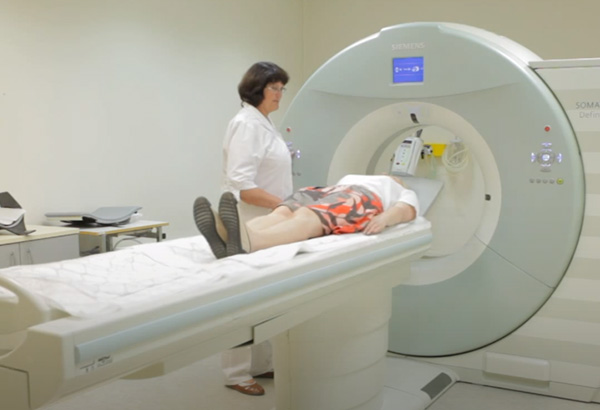Hila
V. Grybo g. 32A, Vilnius, Lithuania
7:00 - 20:00
MRT examinations performed until 21.00
8:00 - 15:00
MRI examination schedule - 7.00-19.00
9:00 - 15:00
Only MRI examinations!
The laboratory closes 30 minutes earlier than indicated.
Free parking to the right of the building. Drive up to the barrier, wait for the guard to lift it, and enter the site.

All of the center's medical service facilities are accessible for people with disabilities.
Hila | Family Medicine
Estų g. 1, Vilnius
8.00–20.00 val.
The laboratory closes 30 minutes earlier than indicated.
Free car parking is available in the shopping center's lot.

All of the center's medical service facilities are accessible for people with disabilities.
Hila | Family Medicine
Laisvės pr. 10A, Vilnius, Lithunia (B building)
8.00 - 20.00

The laboratory closes 30 minutes earlier than indicated.
Free parking - in reserved places in front of the entrance to the center.

All of the center's medical service facilities are accessible for people with disabilities.
Hila | Šeimos medicinos centras (Bičiulių g.36)
Bičiulių g. 36, Vilniaus r. sav.
07.00 – 20.00 val.
nedirbame
Hila | Reabilitacijos ir sporto medicinos centras (V. Grybo g. 32A)
V. Grybo g. 32A, Vilnius
7.00–20.00 val.
Please arrive in sportswear for the physiotherapy session and certain tests.
Free car parking is available on the right side of the building.
Drive up to the barrier, wait for security to lift it, and enter the parking lot.

All of the center's medical service facilities are accessible for people with disabilities.
Hila | Rehabilitation and Sports Medicine
Lvivo g. 101, Vilnius, Lithuania
8.00 - 20.00
Please arrive in sportswear for the physiotherapy session and certain tests.
Paid parking - UNIPARK and ParkTown. Read instructions

All of the center's medical service facilities are accessible for people with disabilities.
Hila | Rehabilitation and Sports Medicine
Estų g. 1, Vilnius
7.00-20.00 val.
9.00-15.00 val.
Please arrive in sportswear for the physiotherapy session and certain tests.
Paid parking - UNIPARK and ParkTown. Read instructions

All of the center's medical service facilities are accessible for people with disabilities.
Hila | Reabilitacijos ir sporto medicinos centras (Bičiulių g.36)
Bičiulių g. 36, Vilnius
Hila
V. Grybo g. 32A, Vilnius, Lithuania
7:00 - 20:00
MRT examinations performed until 21.00
8:00 - 15:00
MRI examination schedule - 7.00-19.00
9:00 - 15:00
Only MRI examinations!
The laboratory closes 30 minutes earlier than indicated.
Free parking to the right of the building. Drive up to the barrier, wait for the guard to lift it, and enter the site.

All of the center's medical service facilities are accessible for people with disabilities.
Hila | Family Medicine
Estų g. 1, Vilnius
8.00–20.00 val.
The laboratory closes 30 minutes earlier than indicated.
Free car parking is available in the shopping center's lot.

All of the center's medical service facilities are accessible for people with disabilities.
Hila | Family Medicine
Laisvės pr. 10A, Vilnius, Lithunia (B building)
8.00 - 20.00

The laboratory closes 30 minutes earlier than indicated.
Free parking - in reserved places in front of the entrance to the center.

All of the center's medical service facilities are accessible for people with disabilities.
Hila | Šeimos medicinos centras (Bičiulių g.36)
Bičiulių g. 36, Vilniaus r. sav.
07.00 – 20.00 val.
nedirbame
Hila | Reabilitacijos ir sporto medicinos centras (V. Grybo g. 32A)
V. Grybo g. 32A, Vilnius
7.00–20.00 val.
Please arrive in sportswear for the physiotherapy session and certain tests.
Free car parking is available on the right side of the building.
Drive up to the barrier, wait for security to lift it, and enter the parking lot.

All of the center's medical service facilities are accessible for people with disabilities.
Hila | Rehabilitation and Sports Medicine
Lvivo g. 101, Vilnius, Lithuania
8.00 - 20.00
Please arrive in sportswear for the physiotherapy session and certain tests.
Paid parking - UNIPARK and ParkTown. Read instructions

All of the center's medical service facilities are accessible for people with disabilities.
Hila | Rehabilitation and Sports Medicine
Estų g. 1, Vilnius
7.00-20.00 val.
9.00-15.00 val.
Please arrive in sportswear for the physiotherapy session and certain tests.
Paid parking - UNIPARK and ParkTown. Read instructions

All of the center's medical service facilities are accessible for people with disabilities.
Hila | Reabilitacijos ir sporto medicinos centras (Bičiulių g.36)
Bičiulių g. 36, Vilnius
- Doctors
-
Services and prices
Examinations Ophthalmology (eye care) Orthopaedics and traumatology Obstetrics and Gynaecology Rehabilitation and sports medicine Treatment of ear, nose, throat (ENT) disease
-
For patients
How to make an appointmentYou can make an appointment at our Centre by all common methods.What to take care about before arrivingOur personnel will inform you what documents you should have at arrival.What to do at arrival to the CentreAt arrival to the centre please print a ticket at the ticket terminal.Payment and servicesPossible payment by leasing, according to the contract, compensation.Accommodation and mealsOur clinic is located about 3 km from the Vilnius city centre.International patientsThis information is for international patients.Confidentiality assuranceWe understand how are important your personal data.How to arrive to the CentreYou can reach our Center by transport.
- Testimonials
- Articles
- Gift vouchers
Cardiology (cardiovascular treatment)
In the Cardiology Centre, which is one of the division of Medicine Diagnostics and Treatment Centre, physicians cardiologist provide consultations for all heart disorders in children and adults, prescribe and themselves carry out necessary examinations, provides advice on disease prophylaxis and healthy life style, recommendations on the necessary kinesitherapy procedures for health strengthening.
The most common diseases: High blood pressure (hypertension, arterial blood pressure (ABP)), aortic aneurysm, ischemic heart disease, myocarditis, myocardial infarction (heart attack), thromboembolism of the pulmonary artery, atrial fibrillation and flutter (af, afl), heart failure, heart rhythm disturbance (arrhythmia), tachycardia.
Treatment. Heart echoscopy procedures in the Cardiology centre are performed using a new generation echoscope Vivid S6 designed for diagnostics of cardiovascular diseases. The echoscope is a powerful devise, ensuring high quality image, allowing for a physician to visualise even the smallest heart structure and perform accurate measurements of the heart walls, to assess their motility disorders. The sensitive echoscope sensor perfectly detects even fine blood flows through the heart valves, thus allows accurate assessment of heart defects and diagnostics of other valvular conditions.
We are one among the few establishments using the special CT Cardio software during computed tomography for non-interventional examinations of coronary arteries, for the coronary artery assessment.
Cardiosurgeon provides consultations for cardiac surgery, but cardiac surgery is not available at our Centre.
Physicians cardiologists at the Medicine and Diagnostics Centre usually in 1 day find out the causes of health disorders, diagnose diseases and prescribe necessary treatment. *
*In some cases the examination lasting more than one day is required to prove the final diagnosis. In such cases you will be informed by the treating physician or medical staff responsible for the examination.
The most frequently performed tests
Cardiology services and prices
What factors affect the price?
The prices indicated below apply to citizens of the Republic of Lithuania and the European Union.
If you are coming from another country please check the price by telephoning or sending an email.
Doctors
Trinkauskas Paulius
Cardiologist (Heart Diseases)
-
LT, EN
-
Working hours
Prof. MD Serpytis Pranas
Cardiologist (Heart Diseases)
-
LT, EN, RU
-
Working hours
MD Rudiene Virginija
Cardiologist (Heart Diseases)
-
LT, EN, RU
-
Working hours
MD Radauskaite Greta
Cardiologist (Heart Diseases)
-
LT, EN, FR, ES
-
Working hours
MD Sudikiene Rita
Cardiologist (Heart Diseases), Pediatric cardiologist (Heart Diseases)
-
LT, RU, EN
-
Working hours
Lauciuviene Laimute
Cardiologist (Heart Diseases), Pediatric cardiologist (Heart Diseases)
-
LT, RU
-
Working hours
Matelyte Vilma
Cardiologist (Heart Diseases)
-
LT, EN
-
Working hours
Rogalskiene Ruta
Cardiologist (Heart Diseases), Clinical physiologist
-
LT, RU, DE
-
Working hours
Katliorius Robertas
Cardiologist (Heart Diseases)
-
-
Working hours
Sadauskienė Eglė
Cardiologist (Heart Diseases)
-
EN, RU
-
Working hours
Ivanauskienė Kristina
Cardiologist (Heart Diseases)
-
LT, EN
Jakaitė Rusnė
Cardiologist (Heart Diseases)
-
LT, EN
-
Working hours
Jablonskas Tomas
Cardiologist (Heart Diseases)
-
LT, RU, EN
-
Working hours
Brazdžiūnienė Eglė
Cardiologist (Heart Diseases)
-
LT, EN
-
Working hours
FAQ (frequently asked questions)
We recommend to consult cardiologist if:
- There is a family history of inherited cardiac diseases
- If chest pain, dyspnoea, palpitations at physical load newly occur or worsen;
- In case of leg swelling, increased abdominal circumference (not related to obesity);
- If palpitations after fever or dyspnoea at rest develop;
- In case of poor hypertension control;
- If dizziness or fainting episodes occurs;
- If you have too high blood cholesterol levels;
- In all other cases when you are concerned because of symptoms in the heart area.
Cardiologist of our Centre emphasize that arterial blood pressure elevated by 10 mmHg is associated with by 30 percent increased risk of cardiovascular disease and 7 fold higher frequency of cerebrovascular disorders (such as stroke), 4 fold higher incidence of ischemic heart disease and twice higher incidence of damage of leg vasculature. The sudden and even insignificant rise in blood pressure results in immediately occurring disorders – dizziness, headache, mild pain in the heart area, palpitations, dyspnoea, tremor, numbing and vision disorders. When the increase in blood pressure is slow and lasts for several years, because of vascular adaptation a patient may not report any symptoms. However, eventually this leads to the development of cardiovascular diseases.
A blood pressure is the pressure produced by blood on the walls of blood vessels. A systolic blood pressure (also known as superior measurement) is always higher, and diastolic one (inferior) is lower. Systolic blood pressure is measured during the heart contraction. This is the highest pressure on vascular walls at that moment. The diastolic blood pressure is measured during heart relaxation. This is the lowest pressure on vascular walls at that moment. Blood pressure is not constant all the times it varies depending of different biological, emotional and environmental factors.
The baseline blood pressure is measured in the morning,being at rest. The blood pressure increases during heavy activities and sports, after stress, however it drops down at rest or while sleeping.
Individuals with health disorders should measure their blood pressure several times per week in the usual environment, relaxed, after sitting for ten minutes. Elderly people with overweight, suffering from diabetes mellitus and kidney diseases, pregnant females should measure blood pressure twice per day in the morning and in the evening. If you have been diagnosed with hypertension, it is important to measure blood pressure and to record the measurements in the appropriate table. The physician considering these measurements can chose the dose of medicines more accurately.
Physician cardiologists say that arterial blood pressure values measured on different arms may differ by 10-20 mmHg, therefore it is advisable to take measurements on the arm showing the worse results.
“Good” blood pressure is 120/80 mmHg.
For interpretation of blood pressure values we recommend to follow the blood pressure category classification of World Health Organisation and International Hypertension Association:
| Category | Systolic BP (mmHG) | Diastolic (mmHg) |
| Optimal | < 120 | < 80 |
| Normal | 120–129 | 80-84 |
| High normal | 130-139 | 85-89 |
| I degree hypertension (mild) | 140-159 | 90-99 |
| II degree hypertension (moderate) | 160-179 | 100-109 |
| III degree hypertension (high) | < 180 | < 110 |
| Isolated systolic hypertension | < 140 | < 90 |
| Low normal | 90-100 | 60-65 |
| Hypotension | < 90 | < 60 |
Don’t delay, take care of yourself now
The price depends on:
- scientific degree of the preferred physician,
- preferred substances and their amounts required for a specific service,
- applied anaesthesia,
- nursing type and number of in-hospital days.
- preferred type of catering,
- availability of referral letter.
The Centre standard price is applied if you have a properly issued referral letter.
The regular price is applied if you do not have a referral letter.
You do not need a referral letter for laboratory tests, the Regular Price is applied.
How soon are the results of laboratory tests available?
2 hours for the most common (routine) blood tests and urinalysis.
3 hours for tests ordered before 9.00 a. m.
If rare tests are ordered for a single sample that require stopping the analyser to change test reagents, the time to have the test done may be prolonged by several additional hours. 10 to 20 working days, if samples are to be sent to Germany, the time required for the test to be done depends on the complexity of the test.
The reports of computed tomography (CT), magnetic resonance tomography (MRT) imaging and other
instrumental examinations are usually ready immediately, i.e within 2-3 hours after the examination.
The report of a test which is carried out on Saturday is available from the healthcare professional carrying
out the test (usually the report is ready within 3 working days).
The reports of echoscopic and other examinations that are carried out in the physicians office are issued
immediately after the examination.
Regular price
This price applies to patients not covered by compulsory health insurance, who do not have a referral letter from their doctor (except radiological examinations, for which a referral letter is mandatory); when the referral letter does not meet the requirements defined by the legal acts; when the disease is not included in the list of reimbursable diseases; when the referral letter has expired (30 days), and in other cases indicated in the Rules for the Provision and Payment of Commercial Personal Healthcare Services approved by Order No. 357 of the Minister of Health dated 30 July 1999 (with subsequent amendments), the patients should pay for such services themselves.
Should the patient chose particular implants or substances or order individual menus, these will incur additional costs.
What does the service price comprise of?
The price of an instrumental examination consists of the price of the examination and the required materials (contrast medium, injections of the contrast medium, anaesthesiological care, imaging, etc.). The prices of the specific service are available at Reception.
The price of blood laboratory tests is comprised of the test price (indicated in the pricelist) and the price for collecting the blood sample. If a swab is required to carry out a test, this may sometimes incur additional costs. The prices of the specific services are available at Reception.
In the case of surgical treatment additional costs for anaesthesia, implants and substances preferred by the patient as well as individually chosen menus are applied.
In the case of dermatology services only the price for the physician's service is indicated. The total price of a dermatology service includes the price of the procedure and all materials required for the procedure. The prices of the specific services are available at Reception and/or during the consultation with the physician.
The price of a basic procedure is the lowest procedure price. The actual price is discussed during the consultation before the procedure considering the extent and complexity of the procedure.
Notes
For the price of services provided at the Centre outside working hours, ugently, at night, while on holidays or without a referral letter, or that require the presence of physicians not continuously employed by the Centre, please enquire in advance.
The Centre may change the price of services without warning, as well as offer new services, change the content of existing services or refuse to provide certain services.
What factors affect the price?
Centre standard price
For consultations and examinations with a referral letter
According to the Law on Healthcare System of the Republic of Lithuania (part 5 of article 49), if patients prefer to receive more expensive services, materials and procedures, they must pay the difference between the factual price of these services, materials and procedures and the price of the services, materials and procedures that are provided free of charge following the rules defined by the Ministry of Health of the Republic of Lithuania. If patients who are entitled to receive personal healthcare services free of charge prefer to receive additional services or procedures, they must pay for these services or procedures themselves.
The prices presented here are developed according to the Centre Standard which is used while providing high quality integrated and coordinated healthcare services, ensuring patient safety and expedition, integrity of service provision, and effective examination using equipment from reliable manufacturers, newest generation products associated with minimal side effects, and providing the best nursing care.
For example, the colonoscopy procedure is carried out with minimal discomfort to the patient as they are “asleep” during the procedure, i.e. anaesthesia is used during the procedure, and the procedure is continuously monitored by a physician endoscopist and physician anaesthesiologist-reanimatologist.
The price for computed and magnetic resonance tomography scans following the rules established by the Ministry of Health are different in all 5 Territorial Departments of the Health Insurance Fund (HIF). The specific prices are available at Reception.
The price for a consultation with a physician depends on the scientific degree of the selected physician.
This price does not apply to Laboratory tests. The same price is applicable for all patients, irrespective of whether they are covered by public health insurance or have a referral letter from their physician. The price of blood laboratory tests is comprised of the test price (indicated in the pricelist) and the price for collecting the blood sample.
Centre standard price
For surgeries and surgical procedures with a referral letter
For patients who are covered by compulsory health insurance, and have a referral letter from their doctor for the procedure or surgery; any services that are reimbursed from the budget of the compulsory health insurance fund are provided free of charge, except for cases indicated in the Rules for the Provision and Payment of Commercial Personal Healthcare Services approved by Order No. 357 of the Minister of Health dated 30 July 1999 (with subsequent amendments), when patients themselves should pay for such services.
This price applies to patients covered by compulsory health insurance, who have a referral letter from their doctor for the procedure or surgery; the price covers the costs of closely related services necessary for therapeutic purposes that are specified in certain specific cases while providing healthcare services.
Should the patient chose particular implants or substances that are not reimbursed by the compulsory health insurance fund, or they want to have more expensive services or substances for which only the basic price is reimbursed, these as well as any price difference or individual catering menus will incur additional costs.
What does the service price comprise of?
The price of the consultation with a physician comprises of:
- Discussion with the patient – listening to the complaints and taking the patient’s’ medical history (patient provides information to the physician about their health).
- Examination and condition assessment.
- Preliminary diagnosis.
- If indicated, development of an examination and consultation plan (necessary examinations are prescribed and the patient is referred for consultations with other specialists).
- Interpretation and assessment of test results.
- Making and confirmation of the diagnosis.
- Development and implementation of the treatment plan, appointment and discussion about the surgery.
- Recommendations for treatment, nursing, work and care in an out-patient setting.
The final price of the surgery is established by summing up the prices of surgery, anaesthesia, implants, care in the ward (from Day 2), catering price according to the menu preferred by the patient and the price of certain substances. The specific extent of the surgery and its price is discussed before the surgery during the consultation with the surgeon, considering the complexity of the surgery, its duration and the patient's health status.
The price of an instrumental examination consists of the price of the examination and the required materials (contrast medium, injections of the contrast medium, anaesthesiological care, imaging, etc.). The prices of the specific services are available at Reception.
The total price of vaccination services consists of the price of the consultation with a physician and the price of the vaccine. The prices of the specific service are available at Reception.
Example: If you come for a Vaxigrip vaccination, the service price will be calculated as follows:
Vaccination (not including vaccine price) – 6.22 (for those covered by insurance) – 8 Eur (for those NOT covered by insurance)
Influenza vaccine – 12.68 Eur.
In total: 6.22+12.68 = 18.90 Eur or 8+12.68 = 20.68 Eur.
There is no need for a consultation with a physician for influenza and tick born encephalitis vaccinations.
In all other cases a consultation with a physician is mandatory and involves additional costs.
However, if you are referred for a vaccination by another physician and have a referral letter, you do not need to have a consultation with one of our physicians. Please note however that the referral letter for vaccination is only valid for 24 hours from the time it is issued. The vaccine required should be indicated in the referral letter.
The above calculation is presented using conditional numbers.
Notes
For the price of services provided at the Centre outside working hours, urgently, at night, while on holidays or without a referral letter, or that require the presence of physicians not continuously employed by the Centre, please enquire in advance.
The Centre may change the price of services without warning, as well as offer new services, change the content of existing services or refuse to provide certain services.
Teminiai naujienlaiškiai
-Gydytojų patarimai;
-Specialios akcijos tik prenumeratoriams.



















